Erectile dysfunction, or ED, is defined as “the persistent inability to achieve or maintain an erection that is satisfactory for sexual intercourse.”
Statically speaking, 50% of all men have experienced erectile dysfunction at some time or another. After age 40, nearly 40% have to deal with the condition, and by 70 years old, about 70% of men experience some form of ED, usually accompanied by a loss of libido or sex drive.
In the last few decades, the number of men suffering from ED has been increasing. Scientists attribute this to anything from the greater number of hormones in our food and water supply to the increased stress in the lives of the typical adult male.
The good news is that ED, especially “age-related” ED, can be effectively treated in a number of ways!
What Causes Erectile Dysfunction?
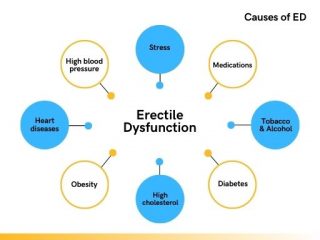
There can be many causes of erectile dysfunction or ED.
ED is a complex condition with many possible causes. One of the main causes of ED as men age is the breakdown and damage that occurs over time to the critical vessels that supply blood to the penis. In addition, all of the following behaviors and conditions can contribute to ED.
- Stress, performance anxiety, or other emotional issues
- Certain medications you are taking
- Tobacco use
- Alcohol abuse
- High cholesterol
- Obesity
- Heart disease
- High blood pressure
- Diabetes
- Clogged arteries
- Effects of some cancers
Hormone imbalances such as growth hormone deficiency and low testosterone can also contribute to erectile dysfunction.
It was once believed that there was a link between masturbation and ED. But no real evidence has ever been found of such a connection, so if you’re wondering does masturbation cause ED or can too much sex cause erectile dysfunction, the answer is no.
Can Erectile Dysfunction or Impotence be Prevented?
There are some lifestyle changes you can make that can improve sexual function and could help prevent ED.
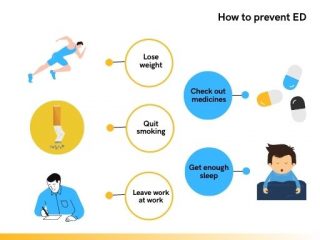 1. Lose Weight – Being more than a few pounds overweight can lead to a lot of health issues – including sexual health issues. The same reasons that a big gut can increase your risk of heart disease, cardiovascular disease, and high blood pressure also put you at greater risk of erectile dysfunction. If you have a waistline of 39 or more, you are twice as likely to have ED than men with a waist circumference of 35 or less. All that extra fat means you probably also have impaired blood flow, which can lead to heart disease as well as ED. Also, increased belly fat lowers your production of testosterone. Low-T also can lead to ED.
1. Lose Weight – Being more than a few pounds overweight can lead to a lot of health issues – including sexual health issues. The same reasons that a big gut can increase your risk of heart disease, cardiovascular disease, and high blood pressure also put you at greater risk of erectile dysfunction. If you have a waistline of 39 or more, you are twice as likely to have ED than men with a waist circumference of 35 or less. All that extra fat means you probably also have impaired blood flow, which can lead to heart disease as well as ED. Also, increased belly fat lowers your production of testosterone. Low-T also can lead to ED.
2. Check out Your Medicine Cabinets – There are a number of medications that can lead to ED. Antidepressants, drugs for hypertension, narcotic pain relievers, and even some common antihistamines can interfere with your ability to gain or maintain an erection.
3. Quit Smoking – You have heard it over and over again about the many negative health impacts of smoking. Smoking also can have a negative impact on your sex life. There is a direct relationship between smoking and ED. Smoking damages blood vessels. Men who smoke are 51% more likely to experience ED than non-smokers. So, if you needed one more reason to quit, here it is!
4. Stop Taking Work Home With You – Stress is a leading cause of ED. One of the leading causes of stress is job-related stress. In our practice, we see a lot of men over 40 coming in with “bedroom issues,” who are in highly stressful jobs, and they just do not know how to leave work at work. That kind of stress and anxiety is murder to sexual performance. Plus, if you are a typical “workaholic,” that leaves little time for getting a good night’s sleep and enough exercise, both of which lower your testosterone and impact your ability to perform sexually.
5. Get Enough Sleep – As stated above, not getting enough sleep negatively impacts sexual function. Particularly in younger men, less than 5 hours of sleep can lead to a significant drop in testosterone levels. Plus, other “feel good” brain chemicals that influence your ability to get an erection, such as dopamine and serotonin, are regulated by sleep.
How Is ED Diagnosed?
Diagnosis and treatment of ED involve finding the cause of your problem and ruling out any underlying medical conditions that could be behind your trouble getting or maintaining an erection.
Tests for underlying conditions might include:
- Physical exam. This might include careful examination of your penis and testicles and checking your nerves for sensation.
- Blood tests. A sample of your blood might be sent to a lab to check for signs of heart disease, diabetes, low testosterone levels, and other health conditions.
- Urine tests (urinalysis). Like blood tests, urine tests are used to look for signs of diabetes and other underlying health conditions.
- Ultrasound. This test is usually performed by a specialist in an office. It involves using a wand-like device (transducer) held over the blood vessels that supply the penis. It creates a video image to let your doctor see if you have blood flow problems.
- Psychological exam. Your doctor might ask questions to screen for depression and other possible psychological causes of erectile dysfunction.
How Is ED Treated?
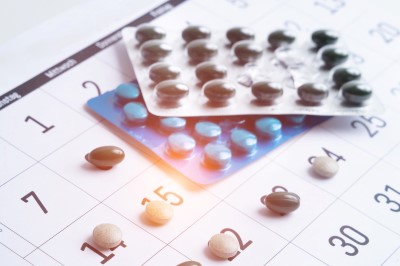 The medical management of erectile dysfunction (ED) has evolved greatly over the past several decades. Prior to the introduction of oral phosphodiesterase inhibitors (PDE5i) such as Viagra, Cialis, and related medications, we were able to offer patients one of only two definitive treatments for ED: implantation of penile prosthesis and surgical penile revascularization.
The medical management of erectile dysfunction (ED) has evolved greatly over the past several decades. Prior to the introduction of oral phosphodiesterase inhibitors (PDE5i) such as Viagra, Cialis, and related medications, we were able to offer patients one of only two definitive treatments for ED: implantation of penile prosthesis and surgical penile revascularization.
The introduction of Viagra and related oral ED medications have ushered in a new era of non-invasive treatments for erectile dysfunction. Today we have five such medications available, and those are not even the only options for men with ED. For men who cannot take these medications or simply would prefer an alternative to drugs, there are several other non-invasive ways available now to treat ED.
Before the introduction of Viagra, penis pumps and vacuum devices were the only alternatives to implant surgery. A variety of pumps are still available. Regardless of the manufacturer, these devices work by exerting a negative pressure on the penis, which results in an increase in corporeal blood flow and subsequent erection.
But pumps are only one of many alternative ED treatments we can offer patients today. Some of the latest treatments for ED include:
- Intracavernous Injections – In Intracavernosal therapy, a “Tri-mix” of medications, usually a combination of alprostadil, papaverine, and phentolamine, are self-injected directly into the penis. The needles are very thin, and the injection is virtually pain-free. This custom compounded blend of three medications has proven to be a safe and effective alternative treatment option for men who are dealing with erectile dysfunction or even for men that would just like to improve performance. Blood flow to the penis increases almost instantly upon injection.
- MUSE Therapy – Similar to penile injections, is another treatment known as the “medicated urethral system for erection,” or MUSE. In MUSE therapy, tiny pellets containing medication similar to Trimix are inserted via the urethra into the penis before intercourse. The pellets have been designed as an alternative for men who are just too squeamish to think about a penile injection or who could never get used to doing the injections correctly. The MUSE method uses a disposable plastic applicator to insert a pellet about an inch into the urethra. From there, the drug is quickly absorbed by the surrounding tissue and reaches the corpora cavernosa, where it dilates the arteries and provides a powerful and sustainable erection.
 PRP Therapy – One of the latest and most effective alternative treatments for ED uses Platelet Rich Plasma or PRP. PRP uses the healing and growth factors in the patient’s own blood to improve his ability to obtain and maintain an erection. One of the first such PRP treatments for ED to be introduced was the P-shot. In our practice, we have improved upon the P-shot and created our own proprietary PRP treatment known as the Gains Enhancement®. Unlike TriMix or other intracavernous injections, PRP injections are completely drug-free and have minimal side effects.
PRP Therapy – One of the latest and most effective alternative treatments for ED uses Platelet Rich Plasma or PRP. PRP uses the healing and growth factors in the patient’s own blood to improve his ability to obtain and maintain an erection. One of the first such PRP treatments for ED to be introduced was the P-shot. In our practice, we have improved upon the P-shot and created our own proprietary PRP treatment known as the Gains Enhancement®. Unlike TriMix or other intracavernous injections, PRP injections are completely drug-free and have minimal side effects.- Acoustic Wave Therapy – Wave therapy has been used for several years for the treatment of conditions ranging from orthopedics to urology. In the case of ED, the procedure uses high-frequency acoustical waves to open and repair blood vessels in the penis that tend to build up with plaque or otherwise become compromised over time. The resulting improvement in blood flow, achieved by the creation of new blood vessels and the rejuvenation of existing vessels, increases the patient’s ability to obtain and sustain an erection.
- Hormone Replacement Therapy – The loss of certain hormones as men age, in particular testosterone and human growth hormone, can contribute to ED. Testosterone replacement therapy and HGH injections have both been proven to help improve erectile dysfunction and increase sex drive in men between 40 and 65 who have ED that is caused by age-related hormone decline.
Can HGH Help Men with Erectile Dysfunction?
Studies have found that ED, especially “age-related” ED, can be helped by growth hormone replacement therapy. HGH has been shown to both improve libido and help men with ED. Human growth hormone has been clinically proven to be a safe and effective solution for many men who are suffering from ED. When properly prescribed by your doctor, HGH therapy can be a proven alternative to oral ED medications and other ED treatments in helping many men with ED enjoy their sex lives once again.
Frequently Asked Questions About ED
What is the most common cause of ED?
There can be many causes of ED, but the most common cause is age. The blood vessels that supply the blood necessary to get an erection break down and become clogged as a man ages. This poor blood supply makes it more difficult to get and maintain an erection.
How can I prevent erectile dysfunction?
There are certain steps you can take that could help prevent erectile dysfunction.
- Lose weight and eat a healthy diet
- Reduce stress
- Quit smoking
- Reduce your consumption of alcohol
- Get adequate sleep
- Regular exercise
What hormones can help with ED?
Two of the most critical hormones to a man’s overall health – testosterone and human growth hormone (HGH) also play a major role in preventing and treating ED and other age-related sexual health issues such as low sex drive or lack of libido.
Both testosterone replacement and growth hormone therapy have been shown in clinical trials to improve symptoms of ED and low libido in men diagnosed with such low testosterone and/or age-related growth hormone deficiency.
Now that you know a lot more about erectile dysfunction, its causes, and possible treatments, and its relationship to your hormone levels, why not contact us and learn more about the many other life-changing benefits of hormone therapy?

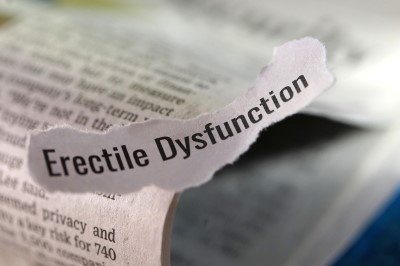
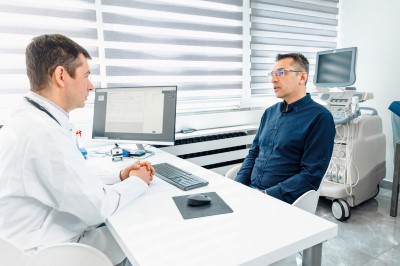 PRP Therapy – One of the latest and most effective alternative treatments for ED uses Platelet Rich Plasma or PRP. PRP uses the healing and growth factors in the patient’s own blood to improve his ability to obtain and maintain an erection. One of the first such PRP treatments for ED to be introduced was the P-shot. In our practice, we have improved upon the P-shot and created our own proprietary PRP treatment known as the Gains Enhancement®. Unlike TriMix or other intracavernous injections, PRP injections are completely drug-free and have minimal side effects.
PRP Therapy – One of the latest and most effective alternative treatments for ED uses Platelet Rich Plasma or PRP. PRP uses the healing and growth factors in the patient’s own blood to improve his ability to obtain and maintain an erection. One of the first such PRP treatments for ED to be introduced was the P-shot. In our practice, we have improved upon the P-shot and created our own proprietary PRP treatment known as the Gains Enhancement®. Unlike TriMix or other intracavernous injections, PRP injections are completely drug-free and have minimal side effects.